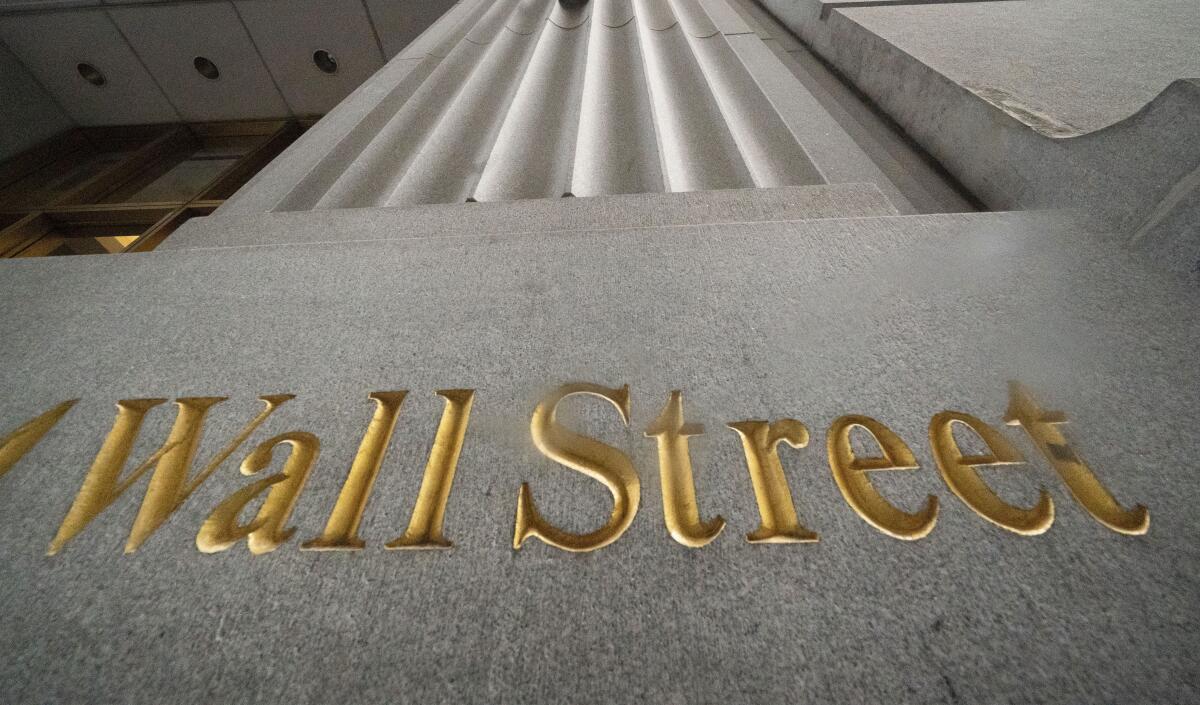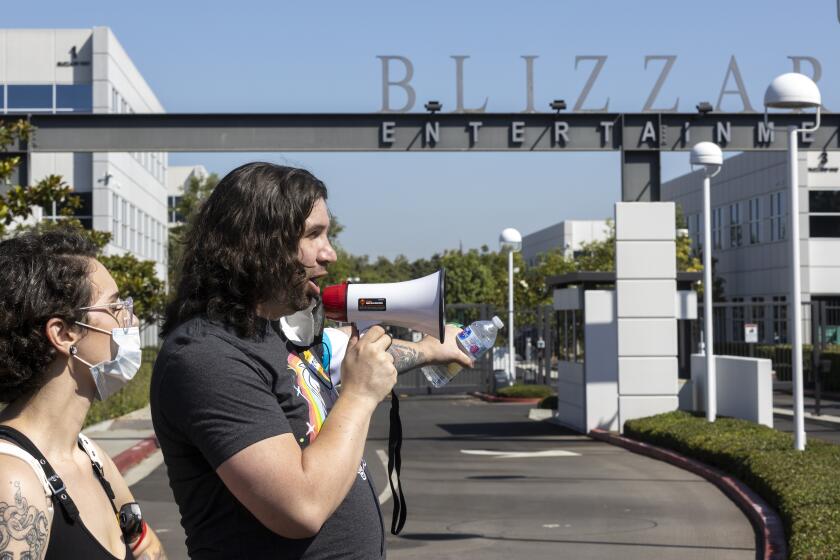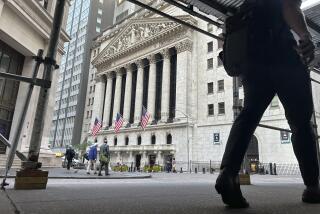Stocks gain ground on Wall Street; oil prices ease lower

- Share via
Technology companies led a rally for stocks Tuesday on Wall Street, as the market more than made up for a modest pullback to start the week.
The Standard & Poor’s 500 index rose 1.1%, with more than 70% of stocks in the benchmark index notching gains. The Dow Jones industrial average rose 0.7% and the tech-heavy Nasdaq composite climbed 2%.
Bond yields rose sharply for the second day in a row, reflecting expectations of more aggressive interest rate hikes by the Federal Reserve as the central bank moves to squelch the highest inflation in decades. The yield on the 10-year Treasury climbed to 2.38% from 2.30% late Monday. The yield, which influences interest rates on mortgages and other consumer loans, was at 2.14% late Friday.
In the job posting, UCLA specified that “applicants must understand there will be no compensation for this position.” In other words: no salary, no benefits.
The rise in bond yields and stocks comes a day after Federal Reserve Chair Jerome H. Powell said the central bank was prepared to move more aggressively in raising interest rates in its fight against inflation, if it needs to do so. Powell said the Fed would raise its benchmark short-term interest rate by a half-point at multiple Fed meetings, if necessary.
“Maybe investors are feeling that with the Fed taking more of a proactive approach early on it won’t have to slam on the brakes later,” said Sam Stovall, chief investment strategist at CFRA.
The S&P 500 rose 50.43 points to 4,511.61, and the Dow gained 254.47 points to 34,807.46. The Nasdaq rose 270.36 points to 14,108.82.
Smaller-company stocks also bounced back. The Russell 2000 index advanced 22.41 points, or 1.1%, to 2,088.34.
Concerns about rising inflation and slower economic growth have been weighing down stocks in 2022, but a rally last week helped trim some of the benchmark S&P 500′s losses for the year. The index is now down 5.3%.
Grocery workers across Southern California began voting Monday to authorize a strike against supermarket chains to pressure the companies to raise wages.
Markets have been choppy as Wall Street adjusts to slower economic growth now that federal spending on various stimulus measures has faded away.
“This is actually fairly normal, but it doesn’t feel normal because the last few years have been really strong,” said Matt Stucky, senior portfolio manager at Northwestern Mutual Wealth.
On Wednesday, the central bank announced a quarter-point rate hike, its first interest rate increase since 2018. The Fed hasn’t raised its benchmark rate by half a point since May 2000.
“What has been a frustrating inflation setup for the Federal Reserve is likely getting more complex given the geopolitical conflict,” Stucky said.
Investors’ concerns about persistently rising inflation have been worsened by Russia’s war in Ukraine. Energy and commodity prices were already high as demand outpaced supply amid the global economic recovery, but the conflict has pushed oil, wheat and other prices even higher.
Rising raw material costs and shipping problems have made it more expensive for businesses to operate. Many of those costs have been passed on to consumers, and higher prices for food, clothing and other goods could result in less spending and slower economic growth.
Technology and communications stocks drove a big share of the gains in the S&P 500 on Tuesday, as did stocks of companies that rely on consumer spending. Apple rose 2.1% and Twitter gained 2.6%. Nike added 2.2% after reporting surprisingly good third-quarter financial results. Energy stocks slipped as oil prices declined.
The last few years have seen a surge of worker organizing activity in the video game industry, buoyed by a tight labor market and a string of damaging allegations around workplace culture.
Banks helped send the market higher as bond yields continued rising. Higher bond yields allow banks to charge more lucrative interest on loans. Bank of America rose 3.1% and JPMorgan Chase gained 2.1%.
The price of U.S. benchmark crude oil fell 0.3% to $111.76 per barrel, while Brent, the international standard, slipped 0.1% to $115.48 per barrel. European markets rose broadly, while Asian markets closed higher overnight.
Investors will soon start readying for the next round of corporate earnings reports as the current quarter nears its close at the end of March, and that could provide a clearer picture of how industries continue handling rising costs.
More to Read
Inside the business of entertainment
The Wide Shot brings you news, analysis and insights on everything from streaming wars to production — and what it all means for the future.
You may occasionally receive promotional content from the Los Angeles Times.













